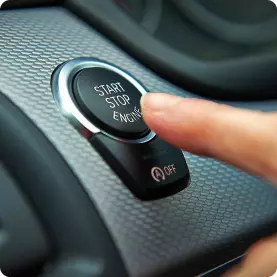Wisconsin OWI Laws: Guide to Drunk Driving Charges and Penalties
Wisconsin refers to drunk driving as “Operating While Intoxicated” (OWI) rather than “Driving Under the Influence” (DUI). The state has some of the nation’s most stringent penalties for first-time offenses, with escalating consequences for repeat violations. This guide breaks down the key steps including Wisconsin’s OWI definitions, the administrative and criminal processes, financial penalties, and how to get your license reinstated.

Getting Started
If you’re charged with an OWI in Wisconsin, it’s essential to understand the legal and administrative processes involved. You face both administrative penalties from the Wisconsin Department of Transportation (WisDOT) and criminal charges through the court system. Understanding Wisconsin OWI laws is crucial for navigating the state’s legal process and working toward license reinstatement.
Important Note: While this page provides detailed information, DUI.org does not offer legal advice. For specific guidance on your case, consult with a qualified OWI defense attorney.
Definitions to Know
OWI (Operating While Intoxicated)
Wisconsin’s legal term for driving under the influence of alcohol or drugs.
SR-22
A certificate of financial responsibility filed by your auto insurer proving you maintain the minimum required liability insurance coverage after an OWI conviction.
IID (Ignition Interlock Device)
A breathalyzer installed in a vehicle to prevent it from starting if alcohol is detected on your breath.
Occupational license
A restricted driver’s license that allows those with a suspended or revoked license to legally drive for specific, necessary purposes such as work, school, church, medical appointments, and household duties.
Wisconsin Department of Transportation (WisDOT)
The Wisconsin Department of Transportation handles the administrative aspects of OWI cases, including license suspensions, revocations, and reinstatement requirements. WisDOT oversees the ignition interlock device program and SR-22 insurance filing requirements. They also administer restricted license applications for those eligible to drive during a suspension period.
Steps to Take After OWI Arrest in Wisconsin
- Hire an Attorney
Legal counsel can help navigate both administrative and criminal processes, potentially reducing penalties or identifying defense options.
- License Suspension
Your driving privileges will be automatically suspended if you fail a chemical test or refuse to take one. The suspension begins 30 days after the notice of suspension is issued.
- Request an Administrative Hearing
If disputing a suspension, you must request a hearing with the Wisconsin Division of Motor Vehicles (DMV) within 10 business days of your arrest.
- Apply for an Occupational License
If eligible, you may apply for limited driving privileges through an occupational license, which typically restricts driving to essential purposes like work, school, or treatment.
- Install an Ignition Interlock Device
Required for all repeat OWI offenses and first-time offenses with a BAC of 0.15% or higher.
Explore IIDs - File an SR-22 Form
Proof of insurance-related financial responsibility through an SR-22 may be required for license reinstatement following an OWI conviction. Your insurance provider must file this form directly with the DMV.
- Complete Substance Abuse Assessment
All drivers convicted of OWI must undergo an alcohol and drug assessment and comply with treatment recommendations.
- Pay Fines and Fees
You’ll need to pay court fines depending on offense number, plus license reinstatement fees and other costs.
- Complete OWI Education Program
Mandatory alcohol education courses will likely be required as determined by your assessment.
- Attend Court Proceedings
Your criminal case will proceed independently from administrative actions and may involve multiple court appearances.
- Comply with Probation
Probation terms may include regular check-ins, sobriety monitoring, and abstaining from alcohol or drugs.
Learn about discrete, personal sobriety monitoring tools.
- Avoid Further Violations
Additional OWI offenses or violating the terms of your restricted license can result in extended suspensions, mandatory jail time, and significantly increased penalties.
DUI Laws in Wisconsin
What Are the Legal Driving Alcohol Limits in Wisconsin?
In Wisconsin, it’s illegal to drive if you’re under the influence of alcohol, drugs, or both. The law sets clear blood alcohol concentration (BAC) limits based on your age and license type. Police often use a breathalyzer to quickly check your Breath Alcohol Concentration (BrAC).
| Driver Category | Illegal BAC Limit |
| Drivers 21 and older | 0.08% |
| Commercial Drivers (CDL) | Any detectable amount (Zero Tolerance) |
| Under 21 | Any detectable amount (Zero Tolerance) |
Felony vs Misdemeanor OWI Charges
In Wisconsin, OWI offenses can be classified as either misdemeanors or felonies depending on several factors:
Misdemeanor OWI
First, second, and third OWI offenses are typically misdemeanors
Maximum penalties include up to one year in jail and fines up to $2,000
Penalties increase with each offense, even at the misdemeanor level
Felony OWI
Fourth and subsequent OWI offenses are classified as felonies
OWI causing injury or death is a felony regardless of prior offenses
Penalties include substantial prison time (up to 25 years for OWI homicide), fines up to $100,000, and extended or permanent loss of driving privileges
Refusing a Chemical Test Under Michigan OWI Law
Wisconsin has an implied consent law. This law means you automatically give your permission to be chemically tested when operating a vehicle on public roads. Refusing to submit to a blood, breath, or urine test when lawfully requested by a law enforcement officer carries serious penalties separate from any OWI charge.
First Refusal
Up to 2 years
Second Refusal
2-year driver’s license suspension and 6 points on driving record
Third or Subsequent Refusal
3-year license revocation, IID required for vehicles
DUI Penalties & Consequences
Penalties for OWIs in Wisconsin become progressively severe with each conviction and may be enhanced by high BAC levels or having child passengers in the vehicle.
Penalties for OWI Offenses in Wisconsin
1st Offense
Jail Time: No jail (unless with passenger under 16)
Fines: $150-$300
License Suspension: 6-9 months
2nd Offense
Jail Time: 5 days to 6 months
Fines: $350-$1,100
License Suspension: 12-18 months
3rd Offense
Jail Time: 45 days to 1 year
Fines: $600-$2,000
License Suspension: 2-3 years
4th Offense (Felony)
Jail Time: 60 days to 6 years
Fines: $600-$10,000
License Suspension: 2-3 years
Aggravating Factors That Increase Wisconsin OWI Penalties
In Wisconsin, these aggravating factors lead to elevated criminal charges, harsher fines, longer jail or prison time, extended license suspensions, and additional requirements:
- High BAC Level: BAC of 0.15% or higher results in increased penalties and mandatory IID installation.
- Child Passengers: Having a passenger under 16 years old adds mandatory jail time and increased fines, even for first offenses.
- Causing Injury or Death: For first OWI causing injury, the penalty is a misdemeanor of 30 days to 1 year. For a first OWI causing death, the penalty is a felony with a fine of up to $100,000 and prison for up to 25 years.
- Test Refusal: Refusing a chemical test adds additional penalties and longer license revocation periods.
- Open Container: Having open intoxicants in the vehicle results in additional fines.
- Multiple Convictions: Wisconsin counts all previous OWI convictions regardless of how long ago they occurred.
Driving Without a Valid License
Driving with a suspended or revoked license in Wisconsin is a serious offense, especially when the suspension is OWI-related. Penalties include additional fines of up to $2,500, extended suspension periods, and potential jail time of up to one year.
Driving with a revoked license due to OWI may result in vehicle impoundment. Additionally, if caught driving without the required ignition interlock when ordered, you may face further penalties and license sanctions.
License Suspension
Who Determines if You Can Continue Driving After an OWI
The Wisconsin Department of Transportation and the court system both play roles in determining driving privileges following an OWI.
Administrative Suspension (WisDOT):
- Occurs automatically when you fail a chemical test (0.08% BAC or higher)
- Takes effect 30 days after notice is issued
- Separate from any court-ordered suspension
- Immediately eligible to apply for an occupational license
Court-Ordered Suspension/Revocation:
- Determined at sentencing if convicted of OWI
- Length depends on offense number and BAC level
- May run concurrently with administrative suspension
- More severe restrictions for repeat offenses
How Long Will Your License Be Suspended?
Getting your license suspended in Wisconsin means you are no longer allowed to drive a vehicle unless you obtain an occupational license during your suspension period. Here’s how long your regular license may be suspended for an OWI in Wisconsin:
| Offense | Suspension/Revocation Period |
| 1st Offense | 6-9 months |
| 3nd Offense | 12-18 months |
| 3rd Offense | 2-3 years |
| 4th Offense | 2-3 years |
Steps to Reinstate Your License
To regain full driving privileges after an OWI-related suspension in Wisconsin, you must:
- Serve the full suspension or revocation period.
- Pay reinstatement fees.
- Provide proof of financial responsibility via SR-22 form for three years if required.
- Complete required alcohol assessment and any ordered treatment programs.
- Install an IID if mandated (required for repeat offenses and first-time offenses with BAC of 0.15% or higher).
- Pass any required knowledge or road tests (typically for longer revocations).
Restoring Your Driving Privileges
After an OWI conviction in Wisconsin, regaining driving privileges typically occurs in stages, beginning with restricted driving permissions and eventually leading to full reinstatement.
Eligibility for an Occupational License
Wisconsin offers an Occupational License which is a restricted license that allows limited driving for essential purposes during a suspension period. Eligibility requirements include:
- First alcohol offense: Eligible immediately
- Second offense: Eligible after 45 days of suspension
- Third and subsequent offenses: Eligible after 45 days if participating in a treatment program. Absolute sobriety is required.
- Must have no other suspensions or revocations on your record
- Cannot have another occupational license revoked within the past year
- Must install an ignition interlock device (IID) if court-ordered
How to Apply for Occupational License
Follow these steps to obtain an occupational license in Wisconsin:
- Install an ignition interlock device on any vehicles you operate, if required.
- File an SR-22 insurance certificate if required.
- Complete Application MV3027 specifying exact routes and times needed for driving.
- Provide documentation of need (employment verification, school enrollment, or treatment requirements).
- Pay the application fee.
- Bring your application to a DMV service center.
- Restriction typically allows up to 12 hours of driving per day, 60 hours per week.
Wisconsin Ignition Interlock Device (IID) Requirements
Wisconsin requires ignition interlock devices for all repeat OWI offenses and first-time offenses with a BAC of 0.15% or higher. The IID must be installed in every vehicle titled or registered to you at your own expense.
Key requirements include:
- Must be installed for a minimum of one year for first offenses and 1-3 years for subsequent offenses
- Only IIDs from vendors approved by WisDOT can be used
- Operation without a required IID is a criminal offense with additional penalties
- Regular calibration and maintenance required
- Device will record any violations (attempted starts after drinking or tampering)

Selecting the right ignition interlock provider can make a world of difference.
SR-22 Insurance Requirements
Following an OWI conviction in Wisconsin, you may be required to maintain SR-22 insurance (certificate of financial responsibility) for a minimum of three years. This special insurance filing verifies you have the minimum liability coverage required by law and must be maintained continuously throughout the mandated period.
Key points about SR-22 in Wisconsin when applicable:
- Must be filed by your insurance company directly with the DMV
- Typically increases insurance rates substantially at next renewal
- Any lapse or cancellation will be reported immediately to WisDOT
- Cancellation results in automatic license suspension until a new SR-22 is filed
- Must maintain SR-22 coverage for three continuous years
- $25 filing fee plus increased premium costs
- Minimum required liability coverage: $25,000 for death to one person, $50,000 for personal injury, $10,000 for property damage

Let us help connect you to the right licensed insurance specialist for you.
Intoxicated Driver Program
If convicted of OWI in Wisconsin, you must complete an alcohol and drug assessment at a state-approved facility. Based on the assessment results, you may be required to complete education or treatment programs.
The assessment process includes:
- Interview with a certified counselor
- Review of your driving and criminal history
- Evaluation of your alcohol and drug use patterns
- Determination of appropriate intervention level
- Recommendations for education, counseling, or treatment
Program requirements increase with each subsequent offense and may include:
- Group counseling sessions
- Individual therapy
- Intensive outpatient treatment
- Inpatient rehabilitation for severe cases
- Regular attendance at support groups
- Ongoing sobriety monitoring

Understand what to expect and how to prepare for a substance abuse evaluation.
FAQs About OWIs in Wisconsin
How long does an OWI stay on your record in Wisconsin?
An OWI conviction remains on your Wisconsin driving record permanently and will count toward penalties for any future OWI offenses regardless of when they occur.
Can you refuse a breathalyzer test in Wisconsin?
You can refuse, but Wisconsin’s implied consent law means you will automatically lose your license, often for longer periods than a failed test.
Is a first-offense OWI a misdemeanor in Wisconsin?
Yes, a first offense is typically a civil forfeiture (non-criminal) unless there’s a minor in the vehicle or injury occurs.
How does Wisconsin’s “absolute sobriety” law affect underage drivers?
Any detectable amount of alcohol in drivers under 21 violates Wisconsin’s absolute sobriety law, resulting in a $200 fine and license suspension.
Can you drive to work while your license is suspended for OWI?
Only if you obtain an occupational license, which allows limited driving for essential purposes like work, school, and treatment.
Sources
- Wisconsin Legislative Reference Bureau. (n.d.). Wisconsin OWI laws. https://docs.legis.wisconsin.gov/misc/lrb/lrb_reports/lrb_reports_2_8.pdf
- Wisconsin Department of Transportation. (n.d.). Drunk driving (OWI) law. https://wisconsindot.gov/Pages/safety/education/drunk-drv/ddlaw.aspx
- FindLaw. (n.d.). What are the Wisconsin OWI laws? https://www.findlaw.com/state/wisconsin-law/what-are-the-wisconsin-owi-laws.html
- National College for DUI Defense. (n.d.). Wisconsin DUI/OWI laws. https://www.ncdd.com/wisconsin-dui-owi-laws
- Wisconsin Law Library. (n.d.). Drunk driving. https://wilawlibrary.gov/topics/justice/crimlaw/drunk.php
- Wisconsin Department of Transportation. (n.d.). Ignition interlock device. https://wisconsindot.gov/Pages/dmv/license-drvs/susp-or-rvkd/IID.aspx
- Wisconsin Department of Transportation. (n.d.). Proof of insurance. https://wisconsindot.gov/Pages/dmv/license-drvs/susp-or-rvkd/proof-of-insurance.aspx
- Wisconsin Department of Health Services. (n.d.). IDP directory. https://www.dhs.wisconsin.gov/idp/directory.htm
Get support.
What is next? We can help you through the process. Give us a little information and we can support you through the next steps.
All fields are required.